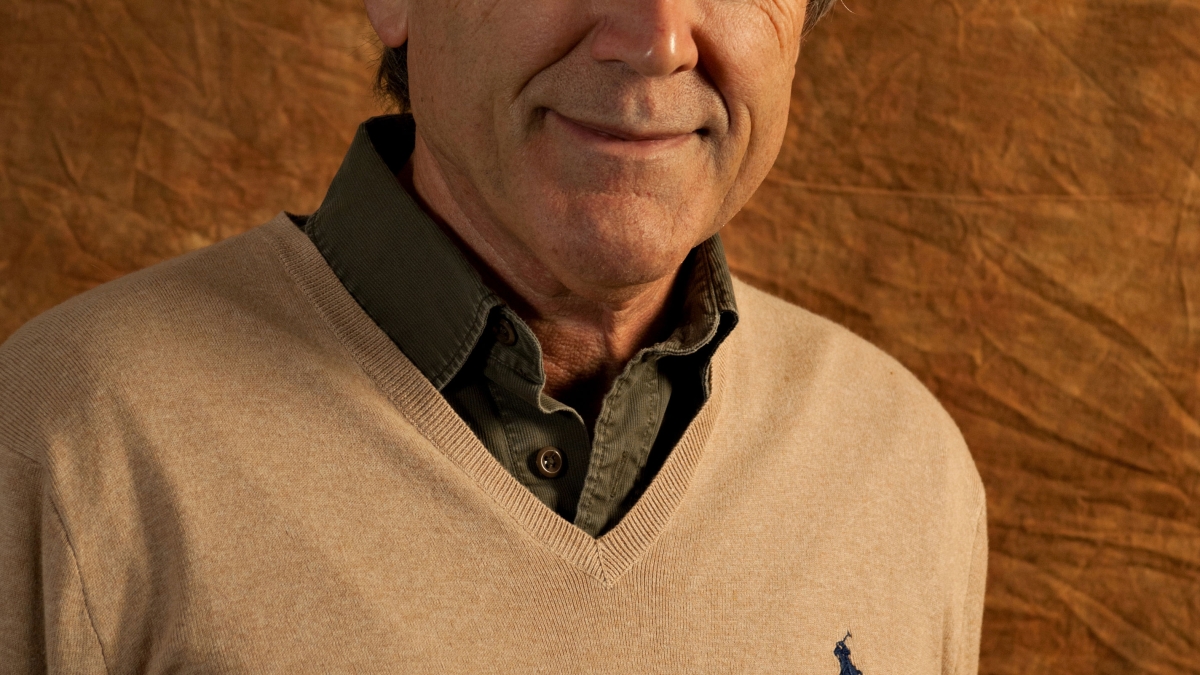Regents' Professor examines the physics of cancer

Editor's Note: This professor profile is part of a series that looks at the achievements of seven outstanding faculty members who were named ASU Regents' Professors in 2011.
Cosmologist Paul Davies, world-renowned for confronting galactic questions – “Why is the universe just right for life?” and “Are we alone?” – is now applying his inquisitive approach to a 40-year-old puzzle: How to survive cancer.
“We’re never going to make any progress with the so-called ‘war on cancer’ without understanding the grand story of life itself,” says Davies, a theoretical physicist and astrobiologist, who recently was named a Regents’ Professor at Arizona State University.
“You have to see it [cancer] in the broader context and that is where astrobiologists fit in,” Davies says. “They ask: ‘What are the key features of life?’ – not what is the story of our form of life, but what does it take for something to be living.”
Davies, who has published research that ranges from how black holes radiate energy to what caused the ripples in the cosmic afterglow of the big bang, is the founding director of the BEYOND Center for Fundamental Concepts in Science at ASU. He was among the first scientists to suggest that life may have started on Mars and came to Earth inside rocks splattered off the Red Planet by comet impacts.
“People pooh-poohed my idea at first, but now it is widely accepted that Mars and Earth may have traded microbes when they traded rocks,” he says.
Davies also was one of a handful of cosmologists to propose the existence of so-called “dark energy,” a type of antigravity that speeds up the expansion of the universe. It was at that time a deeply unpopular theory, but several years later astronomers discovered, to their astonishment, that dark energy really exists.
Throughout his career, Davies has maintained a strong interest in the nature of time and its relationship to cosmology.
“It’s probably my longest-running research project,” Davies says.
When the deputy director of the U.S. National Cancer Institute called him in 2007 and asked if physicists could help by bringing a fresh approach to what she described as a glacial pace of clinical progress in the war on cancer, Davies wasn’t quite sure what to make of the call, but he was intrigued.
“I explained that my career was focused on quantum mechanics and black holes – and that I knew nothing about cancer,” Davies recalls. “She said that was alright and explained that physicists think about the world in a distinctive way and she was looking for fresh ideas and insight from our problem-solving approach.”
Davies now leads one of 12 NCI-funded physical sciences-oncology centers in the United States.
“By connecting the dots of evolutionary, developmental and cancer biology, we have come to view cancer not so much as a disease to be cured as a condition to be controlled,” Davies says.
He and Charles Lineweaver of the Australian National University published a theory of cancer last year “based on the concept that it is an evolutionary throwback to our earliest ancestors.”
“We proposed that cancer results from an accidental reawakening of the earliest metazoan genes, the ones programmed to build the sort of structures that inhabited Earth hundreds of millions of years ago,” Davies says. “If we’re right, then we will have a well-defined target for therapy.”
That kind of fearless championing of bold new ideas earned Davies the moniker of “the disruptor” in a June 2011 profile in the journal Nature. Colleague Stuart Lindsay, a biophysicist at ASU’s Biodesign Institute, told the reporter that “it takes someone like Paul, constantly nagging, asking disruptive questions, to get people to take a fresh look at their assumptions.”
Davies imparts that lesson to students and postdoctoral scholars as well, according to Sara Imari Walker, a NASA Astrobiology Institute post-doctoral fellow working at ASU.
“My research interest is the origin of life and that is a real tough question that requires knowledge of chemistry, biology and physics,” says Walker, who has a doctorate in physics and astronomy. “Paul can converse on all these different subjects and has an amazing capacity to engage people in science by being able to explain very difficult concepts at a level suitable to the audience.
“I’ve learned from him that deep questions really matter and they should inform all the science you do,” she says. “By approaching science that way, it makes you a better scientist. I find that I am asking much better questions about my mainstream research in ways I would not have thought about before.”
Another scientist describes Davies as unassuming.
Says Sid Bacon, an associate vice president for Knowledge Enterprise Development at ASU: “He is a next-door, down-to-Earth kind of guy. But once you start talking to Paul, you discover he is knowledgeable in so many areas.”
__________________________________________________________________________________________
Most recent book
"The Eerie Silence: Renewing Our Search for Alien Intelligence"
Popular best-sellers
"The Goldilocks Enigma: Why the Universe Is Just Right for Life"
"How to Build a Time Machine"
"The Origin of Life"
"The Last Three Minutes"
"The Mind of God"
"The Cosmic Blueprint"
"The Big Questions"
Honors
1995 Templeton Prize
1999 Asteroid 1992 OG officially named (6870) Pauldavies
2001 Kelvin Medal by the Institute of Physics
2002 Michael Faraday Prize from the Royal Society
2007 inducted as a Member of the Order of Australia
2011 Robinson Prize in Cosmology from Newcastle University in the UK
2011 Award for Excellence in Astronomy Research and Education by the Astronomical Society of the Pacific
Education
1970 Doctorate in physics, University College London
1967 Bachelor’s degree in physics, University College London
Academic appointments
Macquarie University, Australia
University of London, UK
University of Newcastle upon Tyne, UK
University of Adelaide, Australia
University of Cambridge, UK
Research centers
Australian Centre for Astrobiology, Sydney (past)
BEYOND Center for Fundamental Concepts in Science, ASU
Center for Convergence of Physical Science and Cancer Biology, ASU